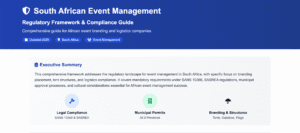Organising an event can feel like a daunting task. Did you know, the 3 C’s are the backbone of successful event management? This article will break down these essentials, making your next event planning experience smoother and more efficient.
Let’s dive in.
Key Takeaways
- The first C, concept, is like setting out your journey’s destination. It shapes every decision, from budget to theme, ensuring the event meets its goals.
- Coordination involves handling all logistics and resources smoothly. This includes picking a venue, arranging transport for guests, managing catering, and booking entertainment.
- Control keeps the event on track by overseeing all parts closely. It ensures everything from catering to activities runs without any problems.
- Successful events rely on understanding and applying these three C’s effectively—concept for vision; coordination for bringing it together; control for perfect execution.
- Mastering the 3C’s leads to memorable experiences that resonate with attendees long after they have left.
Understanding the Concept of Event Management

Event management involves planning and executing events to achieve specific objectives. It aims to create memorable experiences for attendees by carefully orchestrating various elements such as logistics, marketing, and production.
Defining the Purpose and Experience
Every successful event starts with a clear purpose. It’s about understanding why the event is happening and what it aims to achieve. This could range from raising awareness for a cause, generating profit, or even creating lasting memories.
The better defined the objective, the more targeted and effective the planning can be. Skills like creativity, attention to detail, and patience play critical roles in crafting an experience that aligns perfectly with these goals.
Crafting unforgettable moments is at the heart of event management. Offering unique experiences ensures attendees walk away with something truly memorable. A well-thought-out concept sets the stage for these experiences by defining not just the look and feel of an event but its deeper significance too.
It’s this combination of vivid creativity and meticulous organisation—right down from logistics to execution—that transforms a simple gathering into an impactful occasion.
The First C: Concept

Understanding the concept of an event is crucial for its success, so buckle up to explore why a clear event concept is essential for creating a memorable experience.
Importance of a Clear Event Concept
A clear event concept acts as the blueprint for every aspect of an event. It guides the vision, ensuring every detail aligns with the desired outcomes. This foundational step is crucial in setting the tone and direction for both planning and execution.
From establishing objectives to deciding on a budget, everything traces back to this core idea. Think of it as selecting a destination before you start a journey – it informs all decisions that follow, from the route you take to what you pack.
Good communication plays a vital role here too. Everyone involved needs to understand this central concept – from team members and vendors to participants themselves. This ensures cohesive efforts towards creating an impactful attendee experience that resonates with the brand personality.
Moreover, it streamlines coordination and control by providing a clear reference point against which all actions are measured. Essentially, without this clarity at inception, achieving success becomes significantly more challenging.
The Second C: Coordination
Managing logistics and resources is crucial in event coordination. It involves overseeing the venue, catering, communication, and operations to ensure a seamless event.
Managing Logistics and Resources
Selecting the perfect venue kicks off the logistics and resource management process. It’s all about finding a place that matches the event’s vibe, size, and accessibility needs. Coordination doesn’t stop there; arranging transport for guests becomes next on the list.
Whether it’s buses or car hires, ensuring everyone arrives safely is key. Setting up equipment requires precision—each microphone, chair, and projector plays its part in creating an unforgettable experience.
Catering arrangements feed into the heart of any successful event. From choosing menus to coordinating serving times, food can make or break an attendee’s experience. Entertainment booking adds that extra sparkle, whether it’s a band to get people dancing or speakers to inspire.
Activity planning keeps engagement high, offering hands-on experiences that resonate with attendees long after they’ve gone home. Lastly, conducting risk assessments ensures safety isn’t overlooked—even with all eyes on having fun.
The Third C: Control
Managing every aspect of event logistics is crucial for success. Control encompasses overseeing all moving parts to ensure seamless execution.
Staying on Top of Event Logistics
Control is key in event management. It means keeping a firm grip on all moving parts, from the big picture down to the tiniest detail. This involves getting caterers sorted, decorators lined up, entertainment booked, and speakers ready.
We also can’t forget about organising activities, sourcing equipment, and coordinating transport and accommodation.
Event logistics are the backbone of any successful gathering. These best practices make sure everyone enjoys a seamless experience. Whether it’s making sure guests get from point A to B without a hitch or ensuring the venue is set up perfectly before the first attendee walks in—the goal is clear.
Stay ahead of logistics to keep things running smoothly.
The Role of the 3 C’s in Successful Event Management
The three C’s—concept, coordination, and control—form the backbone of successful event management. A clear concept sets the stage, defining what an event is all about and guiding every decision made afterwards.
This initial step ensures that the purpose and goals are well understood, laying a solid foundation for what comes next.
Next, coordination brings the concept to life, handling logistics, resources, and execution with precision. It involves managing multiple moving parts seamlessly—from vendors to venues—to ensure everything aligns perfectly with the initial vision.
Control then keeps everything on track, overseeing logistics to prevent any hiccups during the event itself. It demands attention to detail and strong problem-solving skills to address any issues swiftly without affecting the overall experience.
Together, these principles drive organisation, creativity, and project management towards delivering memorable events that hit their mark every time.
Exploring the 7 Elements of an Event
Planning an event is like putting together a big puzzle. Each piece must fit perfectly for the whole picture to come together. Here are the seven critical elements that make an event successful:
- Core Concept – It’s the heart of your event. This involves knowing what you want to achieve and how you want your guests to feel during and after the event. Whether it’s a conference, a wedding, or a music festival, getting the concept right sets the tone for everything else.
- Core People – These are everyone involved in making the event happen. From planners and vendors to volunteers and attendees, each person plays a vital role. Picking a reliable team ensures your event runs smoothly.
- Venue Selection – Choosing the right place is crucial. It must not only align with your event’s theme but also be accessible to your guests and have all the necessary facilities.
- Event Logistics – This includes everything from setting up the venue to managing traffic flow and ensuring safety measures are in place. Good logistics make for a seamless experience.
- Promotion – You need to get the word out for people to attend your event. Effective marketing strategies involve social media, email campaigns, and sometimes traditional advertising too.
- Programming or Content – What will happen during the event? This could be speeches at a conference, performances at a concert, or activities at a family day out. Engaging content keeps guests entertained and delivers on your core concept.
- Infrastructure – Finally, this covers all the physical aspects like staging, lighting, sound systems, and decorations that bring an event to life; plus any technology used for ticketing and check-ins.
Conclusion
The 3 C’s—concept, coordination, and control—are the backbone of event management. Mastering them ensures every aspect of an event runs smoothly, from initial ideas to execution.
It’s like holding the key to a successful gathering where every detail falls perfectly into place. Remember, events thrive on these three pillars; they guide planners through the chaos towards a seamless celebration.
Get them right, and you’re all set for success.
FAQs
1. What are the 3 C’s of event management?
The 3 C’s of event management are Coordination, Communication, and Control.
2. Why is coordination important in event management?
Coordination is essential in ensuring all aspects of an event work seamlessly together for a successful outcome.
3. How does communication play a role in event management?
Effective communication facilitates clarity and understanding among teams, suppliers, clients, and attendees throughout the event planning and execution process.
4. What does ‘control’ involve in event management?
Control involves overseeing various elements to maintain organisation, meet objectives, and address unexpected issues during an event.
5. Can you explain how these principles apply to different types of events?
These principles are adaptable to diverse events such as corporate functions, weddings, conferences or festivals – they serve as fundamental guidelines for successful event planning and execution.




